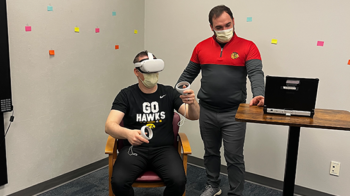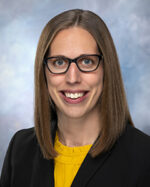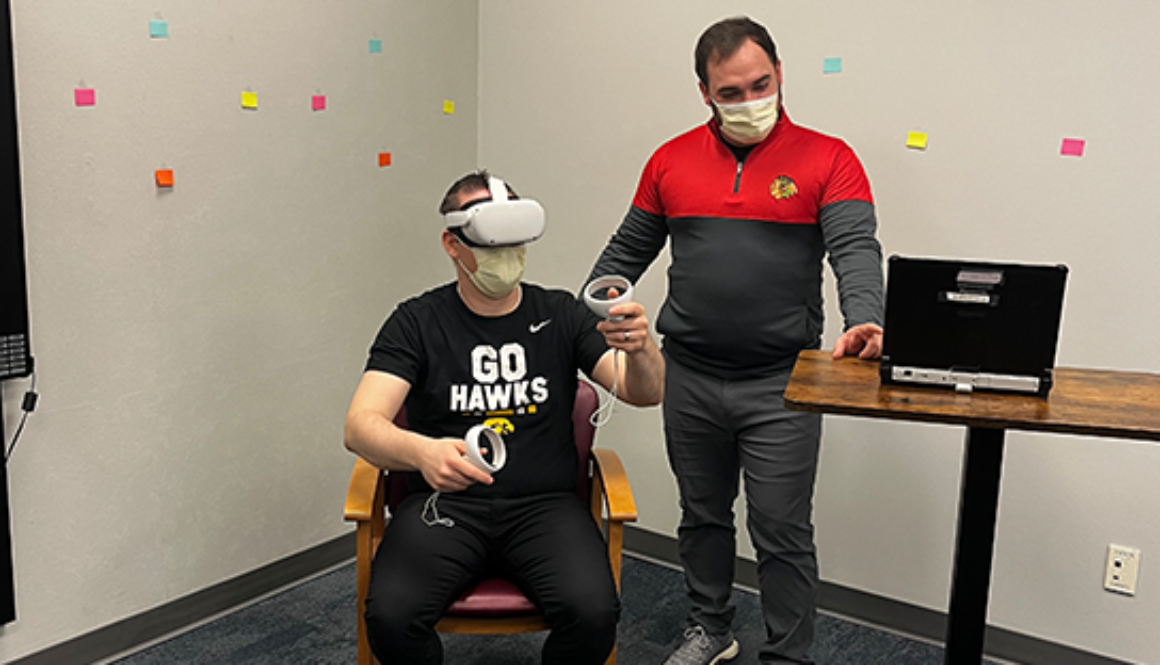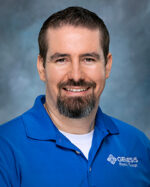Concussion Rehabilitation
“He got his ‘bell rung,’ that’s all.” “She’s just got a headache.” “That kid is always ‘a little off;’ that’s their personality.” These are common rationales I’ve heard from coaches or parents when trying to persuade me to allow their athlete to return to play with a concussion. Maybe if I call it what it is- a mild traumatic brain injury, they would be less resistant to their athlete sitting out.
Concussion management continues to be a frequently discussed topic not only at the collegiate and professional level, but also at the youth and high school levels. I feel the mass public has misconceptions of what a concussion looks like. It’s not surprising. No two concussions look the same and most symptoms are not visible to an outside observer. Symptoms can include: headache, dizziness, memory impairment, confusion, light/sound sensitivity, nausea, irritability, depression, anxiety, etc. We all understand what a broken bone is and looks like when our provider points it out on our X-ray. A concussion is not so easily recognizable; there is no diagnostic image to show what happened. This is why concussion is one of the most under-reported sports-related injuries. This is particularly concerning when considering the catastrophic effects that could result if a second concussion occurs before recovering from the first concussion. This is called Second Impact Syndrome and can result in significant brain damage or even death. The key to safely recovering from concussion is to allow the brain enough time to heal without taking on further trauma. This time frame is different for everybody and can range from one week to several months.

Our Genesis Sports Medicine Team is the only group in the area that provides a continuum of care that consists of athletic trainers recognizing the concussion on the sidelines, a sports medicine physician (Dr. Kelly Krei) to determine most appropriate course of rehabilitation or psychological therapy needed, and rehabilitation therapy specialists to progressively provide neurological and physical stimulus until the individual is ready to return to sport/work/school. Physical therapy, occupational therapy and speech therapy are the rehabilitative disciplines offered at Genesis and are geared toward safe return to sport/work/school. Physical therapy works with issues such as: neck pain, headaches, dizziness, balance impairment, body motion sensitivity, visual motion sensitivity and return to sport/work/school. Occupational therapy works with issues such as: visual-spatial impairments, double vision, coordination, neurofeedback for headaches and return to sport/work/school. Speech therapy works with cognitive impairment, word finding difficulty, memory impairment, planning/schedule making, return to sport/work/school/driving. At Genesis, our advanced interdisciplinary collaboration emphasizes a team-based approach to improve the communication between the individual’s brain and their body to ensure safe return to all activities. It’s this teamwork that allows Genesis to provide the highest quality concussion rehabilitation in the area.




